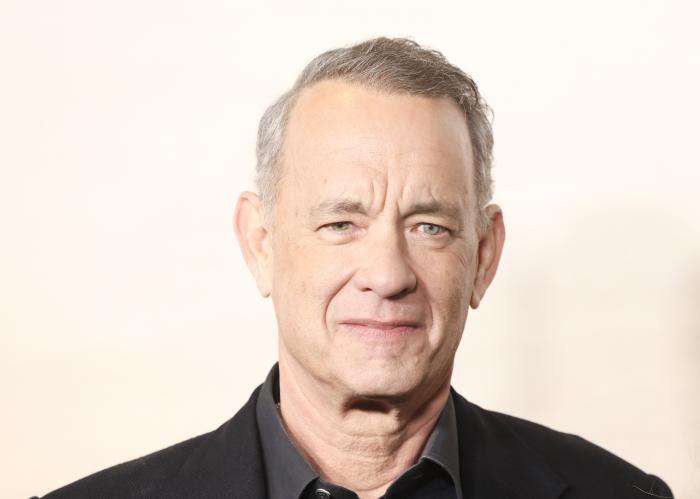

New to Me: East of Eden (1955)
By Eric D. Snider | Think Pieces | September 13, 2012 |
By Eric D. Snider | Think Pieces | September 13, 2012 |
It’s pretty easy to be a James Dean completist, considering he only made three movies. For an actor, that’s the silver lining on the cloud of dying young: there are no obscurities on your résumé to discourage would-be fans from devouring your whole body of work.
Given the undemanding nature of completing the Dean canon, I’m sheepish to admit that the only one I’d seen until now was Rebel Without a Cause, a movie I love and have seen several times and in which I have always admired James Dean. Why it took me so long to seek out East of Eden or Giant, I don’t know. Never underestimate the power of inertia.
New to Me: East of Eden (1955)
Here’s what I already knew before I watched it:
- It was James Dean’s first major film role (he’d had a few walk-on parts before), and he got a Best Actor nomination for it, the Academy’s first posthumous acting nod. Was his tragic death part of the reason he was nominated? That’s a tacky question, and how dare you ask it? Anyway, he lost to Ernest Borgnine in Marty, which is hard to argue with.
- It was based on a John Steinbeck novel, but not one of the ones you had to read in high school.
- When it came out, The New York Times’ hilariously named film critic Bosley Crowther popped his monocle over how much he hated James Dean’s performance:
“This young actor, who is here doing his first big screen stint, is a mass of histrionic gingerbread. He scuffs his feet, he whirls, he pouts, he sputters, he leans against walls, he rolls his eyes, he swallows his words, he ambles slack-kneed — all like Marlon Brando used to do. Never have we seen a performer so clearly follow another’s style. Mr. Kazan should be spanked for permitting him to do such a sophomoric thing. Whatever there might be of reasonable torment in this youngster is buried beneath the clumsy display.”
I suspected I would disagree with Bosley Crowther (or B-Crowz, as the kids called him) about Dean’s performance here, but I love his description of it, and in particular his fantasy about Elia Kazan being spanked while James Dean watches.
- East of Eden was filmed on location, east of Eden, in a place called Los Angeles.
- It was just a few weeks after East of Eden was released that Dean started shooting Rebel Without a Cause, followed by Giant, which was not yet finished when he died on Sept. 30, 1955. (When I say I “already knew” this stuff, I mean the gist of it. I didn’t have the date of James Dean’s death memorized.)
* * *
Then I watched it:
You can see why some people criticized James Dean for “imitating” Marlon Brando. He has the same stammering, naturalistic, slightly mumbled delivery that Brando had in A Streetcar Named Desire (1951) and On the Waterfront (1954) — both of which, like East of Eden, were directed by Elia Kazan, an early proponent of “Method acting.” Dean openly admired Brando (it would have been hard to find a serious young actor at that time who didn’t), but he’s not imitating him here. Dean had studied at Kazan and Lee Strasberg’s Actors Studio too, and learned the same techniques.
You can see just as clearly why viewers in general loved Dean. He had the same qualities (a pretty face, moodiness, vulnerability) that turn a young actor into a teen heartthrob, while also delivering a performance that’s compelling for discerning adults. Apart from Brando, no one else was acting quite like this in movies at the time, all raw and natural instead of mannered and stagy. This style is common now, especially in do-it-yourself indie projects, but it was still rare in 1955. It stands out especially in East of Eden, a movie that looks and feels like Old Hollywood in every respect other than Dean’s performance.
Widescreen movies were still fairly new, hence the big “in CinemaScope!” announcement in the opening credits. (Allegedly just as exciting: “in Warnercolor!” Which really just meant it was in color. It’s not like Warner Bros. went out and invented new ones.) Visually speaking, East of Eden is a quintessential example of Hollywood filmmaking in the mid-1950s: widescreen, vivid colors, unobtrusive camera movement, unhurried editing. Leonard Rosenman’s musical score is also typical, with its sweeping, all-purpose melodies that could have been written for any drama.
I never read the Steinbeck novel, but the film is reportedly based only on the second half of it, and loosely at that. You can tell, I think. Without giving anything away, there’s something the Dean character, Cal, learns fairly early in the movie that feels like the resolution of a much, much longer story arc. He also seems to shift rather abruptly from hating his father to going all-out to please him.
The title suggests a Biblical allegory, and the movie ain’t subtle about it; “I’m not my brother’s keeper” is an actual line of dialogue. Cal is short for Caleb; his twin brother is Aron; their father is Adam. (I don’t know why Aron is missing an “a,” or why their dad pronounces it “air-on” rather than “errun.”) Like Cain and Abel before them, Cal and Aron vie for their father’s approval and eventually quarrel. The family dynamics are surprisingly complex, though. Adam doesn’t quite know what to make of his brooding, less-obedient son, but he loves him all the same. He’s strict, but not tyrannical. And while you might expect Aron, as the “good” son, to condemn Cal’s erratic behavior, instead he finds it funny. He adores Cal and his crazy antics.
I appreciate a sturdy, old-fashioned big-screen drama like this. I often “appreciate” such films more than I actually “enjoy” them, simply because they were made in a different era for a different audience. But I found East of Eden genuinely engaging, largely because of Dean’s forward-looking performance, which compares favorably with Brando’s in On the Waterfront (another movie you should see immediately if you haven’t already). Were it not for Dean, this might be just a relic instead of the moving drama it is. What might Dean have accomplished if he hadn’t died after making three movies? Well, he’d be 81 now, and probably embarrassing himself by playing farting grandfathers in Adam Sandler movies. So maybe it’s all for the best.
(East of Eden is readily available on DVD from the usual places. It’s also available for streaming through Amazon, iTunes, Vudu, Xfinity, and YouTube.)
← Remember That Time Alison Pill Accidentally Tweeted A Topless Photo of Herself and 8 More Fully-Clothes News Items | I Just Might Die with a Smile on My Face After All: The Best Television Comedies of the Last Thirty Years →
More Like This
Ben Shapiro, DailyWire+, and the Face-Eating Leopards
‘Ripley’ Is What 'Saltburn' Wished To Be
How 'Dune 2' and 'Shōgun' Handle the White Savior
Video Games Are Art and That's Okay
Nu Metal Can't Be Back Because It Never Left

Tom Hanks Is Not Trying To Sell You Drugs
Three Trailers: What Happened Before Rosemary's Baby, and Zoe Saldaña In Her Own Skin
Jack White Threatens 'Fascists' In Donald Trump's Campaign With A Lawsuit
Taylor Swift Has a Brittany Mahomes Problem
'The Acolyte's Amandla Stenberg Got Thrown to the Wolves
Christina Aguilera Thinks It’s ‘Corny’ When Celebrities ‘Do Things Intentionally’ to Stay Relevant
Pajiba Love

Taylor Swift Has a Brittany Mahomes Problem
Reviews